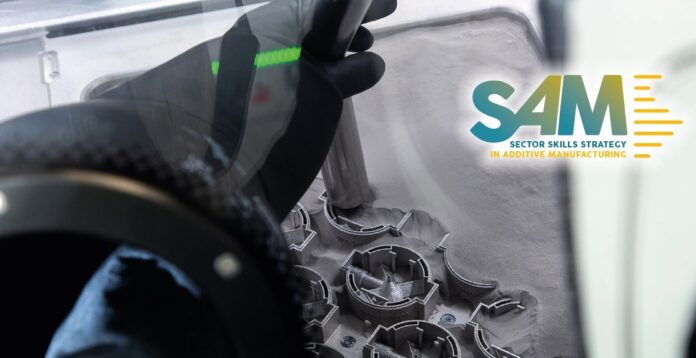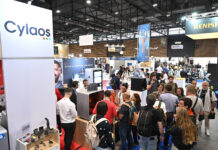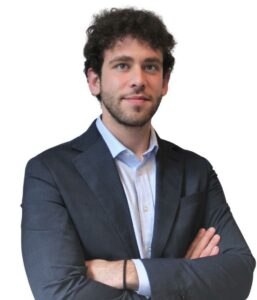
SAM project stands for Sector Skills Strategy in Additive Manufacturing and it aims to tackle the current European need for developing an effective system to identify and anticipate the right skills for the Additive Manufacturing (AM) sector demands in response to the increasing labour market needs, thus, contributing to the smart, sustainable and inclusive growth of the AM sector.
2022 is the final year of the project and many results from the planned and performed activities are starting to become noticeable. In this brief article, you will be able to discover the most relevant milestones reached recently.
Last year’s actions have been focused on implementing the International Additive Manufacturing Qualification System (IAMQS), expanding the network of Associated Training Bodies (ATBs) able to assign certifications, improving the quality of trainings through pilot courses and related impact assessment and finally the gathering of the first results and preliminary findings on skills needs and future skills trends.
IAMQS
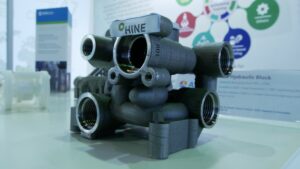 The IAMQS is the core of the SAM project. The International AM Qualification System is composed by a set of qualifications for different proficiency levels in the field of AM technologies, grounded in industry requirements and validated by experts.
The IAMQS is the core of the SAM project. The International AM Qualification System is composed by a set of qualifications for different proficiency levels in the field of AM technologies, grounded in industry requirements and validated by experts.
The System uses a modular structure composed by competence units for learning outcomes to describe the expected knowledge and skills acquired by trainees after the successful completion of the training courses. Within the system, a single syllabus for each level is defined, supported by a harmonised system for assessment and quality assurance, resulting in the same qualification being awarded independently from the country.
The AM Qualification System covers Metal AM Qualifications for Operators, Technicians, Designers, Supervisors, Inspectors, Coordinators and Engineers, as well as one Polymer AM Qualification for Designers. The system ensures that the transfer of knowledge process is developed in a harmonized way, by every authorized organization worldwide.
This Qualification System provides a way to recognize technological knowledge for AM Personnel and it is supported by innovative training guidelines that cover front-end emerging technologies in AM at the industrial level, offering individual learning pathways opportunities.
The IAMQS addresses the specific industry needs and involves trainers from industry and case studies based on real industrial issues. It is recognized as a best practice of international qualification system by CEDEFOP.
System Outreach
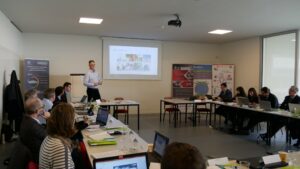 The last period’s focus has been on the creation of a national network of Associated Training Bodies (ATBs) which are selected after a specific process conducted by the Authorised Nominated Bodies (ANBs). This has been done at national and regional level by engaging with organizations that can support the implementation of the IAMQS.
The last period’s focus has been on the creation of a national network of Associated Training Bodies (ATBs) which are selected after a specific process conducted by the Authorised Nominated Bodies (ANBs). This has been done at national and regional level by engaging with organizations that can support the implementation of the IAMQS.
As part of the development of the IAMQS, Associated Training Bodies (ATBs) have been identified to perform training and release certifications for AM. During the last months, SAM project has increased the number of ATBs, reaching 15 affiliated training centres belonging to the network of training centres with geographical representation in Portugal, Spain, France, Italy, Germany, UK, Ireland, and Turkey.
Adding to this, CESOL is already engaging with other potential AM ATBs in order to increase the project results roll-out. AITIIP has been developing collaborations with the Digital Industrial Hub in Aragon (managed by Aragon Technology Institute).
For instance, in Portugal, ISQ is currently engaging with different organisations, training providers and industry, to support the implementation of the IAMQS in Portugal. Currently, ISQ has authorized two ATBs, ISQ Academy and FA, that are already performing some training courses. In Ireland, IMR have begun the process of becoming an ATB and expect to be a fully realised ATB by 2022. In France, AFS association is acting as ANB for France and, jointly with France Additive association, is acting to select the future ATBs.
Impact of Training
The participants involved in the 1st stage of SAM piloting activities have been interviewed to assess the impact and satisfaction about the training programme. These activities included the piloting of the methodology for creating professional profiles and skills through the implementation of revised training guidelines for the IAMQS. In total, 13 CUs were implemented virtually and 4 on-site, as in-person training and face-to-face meetings. The implementation of the 1st Stage Real Case Scenarios counted more than 500 participants (about 22% female) in the lectures, from which 408 students completed the assessment.
According to the results of the conducted surveys, we can affirm that the impact of training has been satisfactory. Namely, AM courses were attractive for a variety of attendants coming from different backgrounds and having several professional profiles (Engineering, Machine Operations, Design, Management, Research) and have been appreciated by both workers and unemployed people. Moreover, most of the participants confirmed that the training had a positive impact regarding the applicability and transfer of knowledge/skills into their professional activity.
Skills needs results
Implementing Additive Manufacturing requires preparing the coming workers and reskilling the current workforce to successfully adopt these technologies. In this sense, it is important to better anticipate the current and future AM skills needs at manufacturing workplaces in Europe.
One of the most important goals in resolving the issues faced by competent professionals in the field of AM is to prepare European, National, and Regional Training Organizations in terms of equipment and experienced personnel. Strengthening collaboration between industry and education is the strategy to be pursued in order to accomplish the desired impact, which is to eliminate skills gaps and ensure alignment of training programs and industry demands.
SAM consortium has recently developed its Report on the Analysis and Validation of Needs aimed at identifying skills gaps and demands of the AM sector for the current state of play and the short-term scenario (3 years). The analysis has been realised through the engagement and inputs coming from key target groups, namely Companies, AM Workers, and Training Organisations.
The validated data will be used afterwards as reference to support the European AM Skills Strategy and to revise existing training courses as well as to develop new ones.
The analysis of needs consists of determining the outcomes of the surveys, comparing different target groups, namely for workforce’s current needs and employers’ future needs (1 year and 3 years scenario).
The core of the assessment about the workforce regarded the interviewees’ expertise on different process types, materials, how they have acquired their AM knowledge and skills (self-study, online courses, external training, etc.), what are the expected relevant technical/digital skills and much more. On the other hand, the scope of the employers’ response was to investigate the most wanted professional profiles (NDT technicians, metrology engineer, resource efficiency engineers, etc.) as well as the most requested tasks and skills.
Concluding, a really interesting result we received from the 2021 training survey, that was also confirmed in the preliminary findings of the 2022 surveys, regards an augmentation of the use of the online training methods and tools. This is a fact that was provoked by the COVID19 pandemic situation all over the world because, as we see, all the organization are adapted to the new conditions of distance learning, using new technologies and tools with the aim of providing comprehensive and flexible training.
It has to be pointed out that the general results remain the same as last year’s results and in line with our 2020 findings. This reflects that the main ideas and ways of working of the training organizations remain unchanged.
Gabriele Favaro’, Policy and Project Officer at CECIMO – Responsible of Communication and Dissemination for SAM



